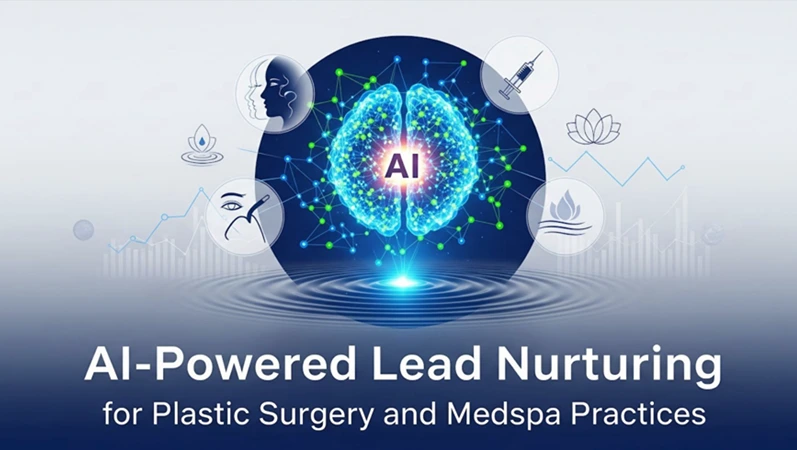
In healthcare, effective patient management and streamlined communication are paramount. This is where Healthcare CRM, a powerful tool reshaping the industry, enters. Let's go on and talk about what CRM stands for in healthcare and explore the multifaceted aspects of healthcare CRM software.
What does CRM stand for in healthcare?
As we all know, CRM stands for Customer Relationship Management. While the term is commonly associated with business and sales, for healthcare, it refers to the strategies, processes, and technologies used to manage interactions with patients, ensuring a seamless and personalized healthcare experience.
How is CRM utilized in healthcare?
Customer Relationship Management in healthcare involves utilizing specialized software to collect, organize, and analyze patient data. This data encompasses demographic information, medical history, health behaviors, appointment and visit history, communication history, and billing/payment information.

Types of Patient Data Collected through CRM
Managing healthcare centers is an intricate process. The utilization of CRM systems has become a cornerstone for delivering personalized and efficient patient care.
Within this web, medical CRM streamlines administrative processes and also serves as a comprehensive repository for a great number of patient data, ranging from demographic information to complex medical histories.
Demographic Information
Patient CRM software captures their demographics, aiding in personalized care and targeted communication.
Medical History
Comprehensive medical histories ensure healthcare providers make informed decisions, optimizing patient care.
Health Behaviors
Understanding patient behaviors assists in tailoring healthcare plans and promoting proactive wellness.
Appointment and Visit History
Tracking appointments and visits enhances scheduling efficiency and ensures timely follow-ups.
Communication History
Effective communication tracking facilitates personalized patient engagement and promotes adherence to treatment plans.
Billing and Payment Information
Efficiently managing billing and payment information streamlines administrative processes, benefiting both patients and providers.
What is the use of CRM Software in the healthcare industry?
The integration of CRM software emerges as a pivotal force driving transformative changes. Beyond conventional applications, healthcare CRM software plays a central role in the following:
Comprehensive Patient Management
CRM software for healthcare providers facilitates holistic patient management, improving care coordination and patient outcomes.
Multi-Department Collaboration
CRM fosters collaboration among various healthcare departments, ensuring a cohesive approach to patient care.
Reporting & Analytics
Advanced reporting and analytics empower healthcare organizations to derive actionable insights for strategic decision-making.

Benefits of Having a Healthcare CRM
Embracing the power of CRM in healthcare revolutionizes patient interactions and opens a gateway to a myriad of organizational benefits. From time and resource savings to heightened communication, digital compliance, and streamlined patient experiences, healthcare CRM emerges as a catalyst for optimizing operational efficiency and elevating overall healthcare service quality.
Saves Time and Resources
Efficient data management and automation save valuable time and resources for healthcare providers.
Improves Communication
Enhanced communication tools enable personalized interactions, fostering patient engagement and satisfaction.
Ensures Digital Compliance
CRM software ensures compliance with healthcare regulations, safeguarding sensitive patient information.
Collect Inquiries and Segment Them Intelligently
Smart segmentation of patient inquiries allows for targeted communication, improving response efficiency.
Offers a Hassle-Free Medical Experience
Streamlined processes contribute to a smoother patient experience, enhancing overall satisfaction.
Automates Patient Feedback Collection
Automated feedback mechanisms enable healthcare providers to gather valuable insights for continuous improvement.
How to Choose the Best Healthcare CRM Software
Choosing the right healthcare CRM software is a critical decision for organizations aiming to enhance patient care and streamline operations. In navigating the options, understanding the key considerations and strategic steps in choosing the best-fit CRM becomes essential for healthcare providers seeking to align technology with their unique organizational needs.
1. Define your goals and objectives.
Clearly outline your healthcare organization's goals and objectives for implementing CRM.
2. Assess your organization’s needs.
Evaluate the specific needs and challenges of your healthcare organization to align with suitable CRM features.
3. Consider your budget.
Determine a realistic budget for CRM implementation, balancing cost-effectiveness with required functionalities.
4. Evaluate features and functionality.
Thoroughly assess the features and functionalities offered by different healthcare CRM software options.
5. Check for compliance and security.
Prioritize solutions that adhere to healthcare compliance standards and prioritize data security.
6. Request product demonstrations.
Seek product demonstrations to understand how the CRM software aligns with your organization's requirements.
7. Read user reviews and seek references.
Explore user reviews and seek references to gain insights into the real-world performance of the CRM software for healthcare.

Key Features of Leapify's Healthcare CRM
Leapify stands at the forefront of revolutionizing healthcare management through its cutting-edge Customer Relationship Management (CRM) solutions tailored specifically for healthcare providers. With a commitment to delivering exceptional patient care, Leapify's advanced AI-powered CRM platform introduces key features that empower healthcare organizations to thrive in today's competitive landscape.
- Personalized Patient Engagement
- Streamlined Operations
- AI-enabled insights
- Enhanced Collaboration
- Customer Connection Maintenance
- Adaptability and Scalability
In choosing Leapify as your CRM partner, you are unlocking a world of benefits that will propel your healthcare practice to new heights of success. Stay ahead of the curve, capitalize on emerging opportunities, and deliver exceptional healthcare services with Leapify's AI-enabled CRM platform.
Common Healthcare CRM Questions
As healthcare organizations navigate patient management, CRM systems have become integral. Addressing common queries can provide valuable insights into the effective utilization of healthcare CRM solutions.
How can healthcare CRM be used to promote patient engagement?
Understanding the strategies for leveraging CRM in the healthcare industry to enhance patient engagement is crucial. This involves personalized communication, efficient appointment scheduling, and tailored healthcare experiences, all facilitated by CRM systems.
What should I consider before implementing a healthcare CRM?
Before embarking on the implementation of a healthcare CRM system, careful consideration of organizational goals, budget constraints, and specific needs is paramount. This question delves into the essential factors that should guide the decision-making process.
How can a healthcare CRM demonstrate marketing ROI?
Exploring how healthcare CRM contributes to measurable returns on marketing investments is vital for organizations seeking to optimize their outreach efforts. The ability of CRM systems to track patient acquisition, retention, and marketing campaign effectiveness is key to demonstrating ROI.
What should I look for in a healthcare CRM vendor?
Selecting the right CRM vendor is a critical decision. This question prompts organizations to evaluate factors such as vendor reputation, product features, scalability, compliance with healthcare regulations, and ongoing support – all of which are pivotal in ensuring a successful partnership.
Transforming Healthcare with Innovative CRM Solutions
CRM in healthcare represents a transformative approach to patient management and communication. By adopting healthcare CRM software, organizations can streamline operations, enhance patient experiences, and ultimately elevate the overall quality of healthcare services. As the healthcare industry continues to evolve, embracing CRM solutions becomes essential for staying ahead in delivering patient-centric care.
Leapify emerges as a transformative force in the healthcare industry, providing tailored CRM solutions that redefine patient care and operational efficiency. With their advanced AI-powered platform, they empower healthcare providers to personalize patient engagement, streamline operations, and gain actionable insights for strategic decision-making. Contact them today!



